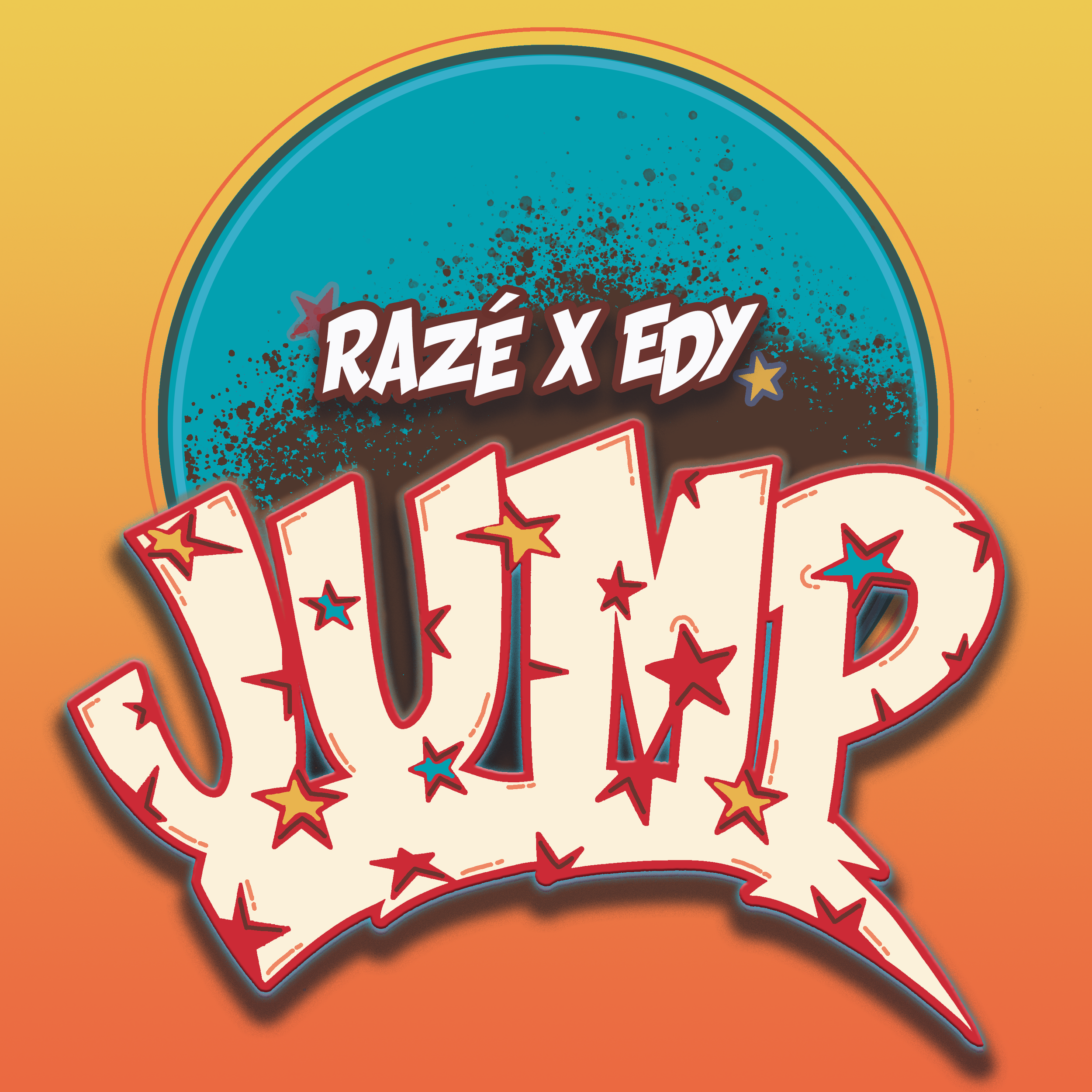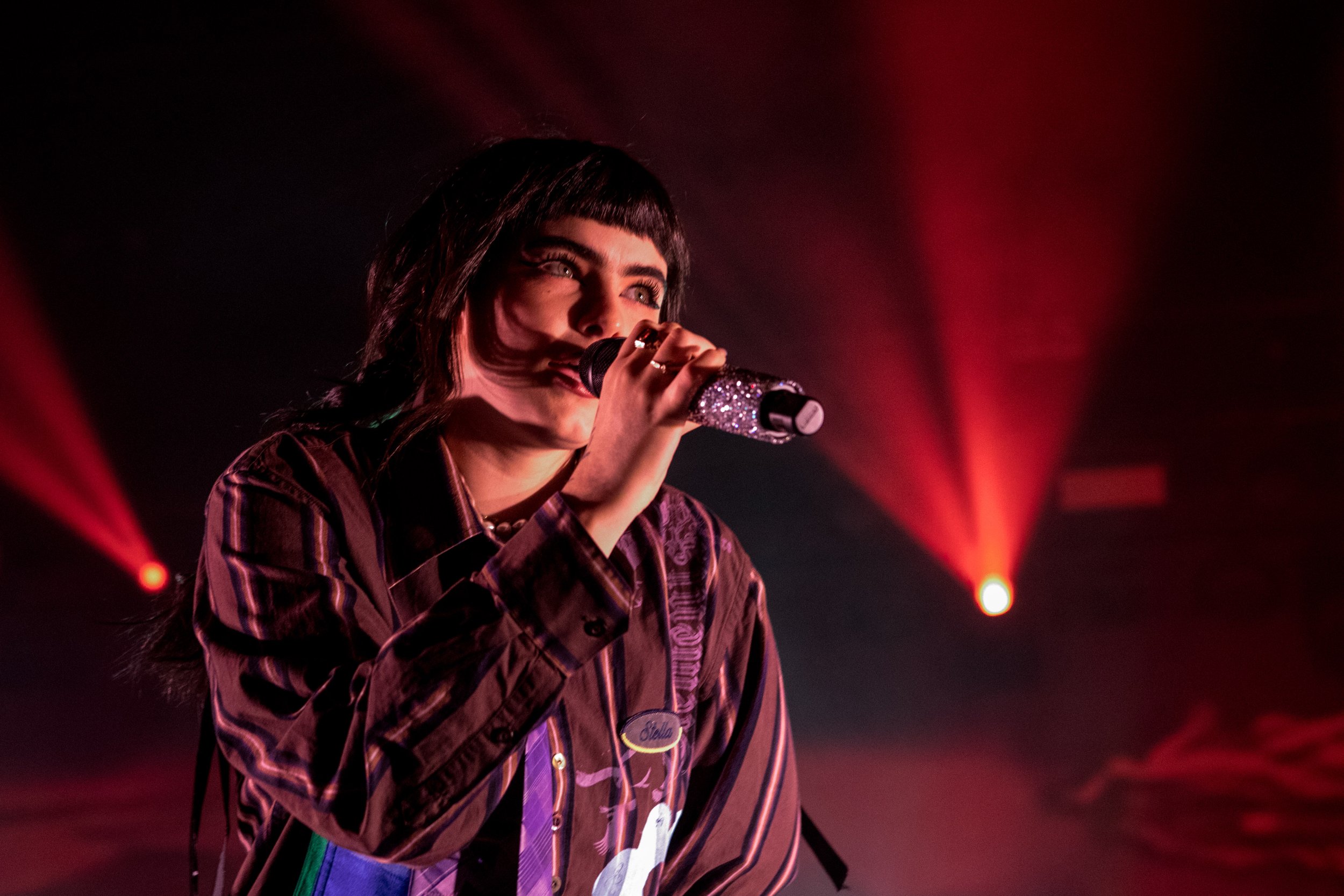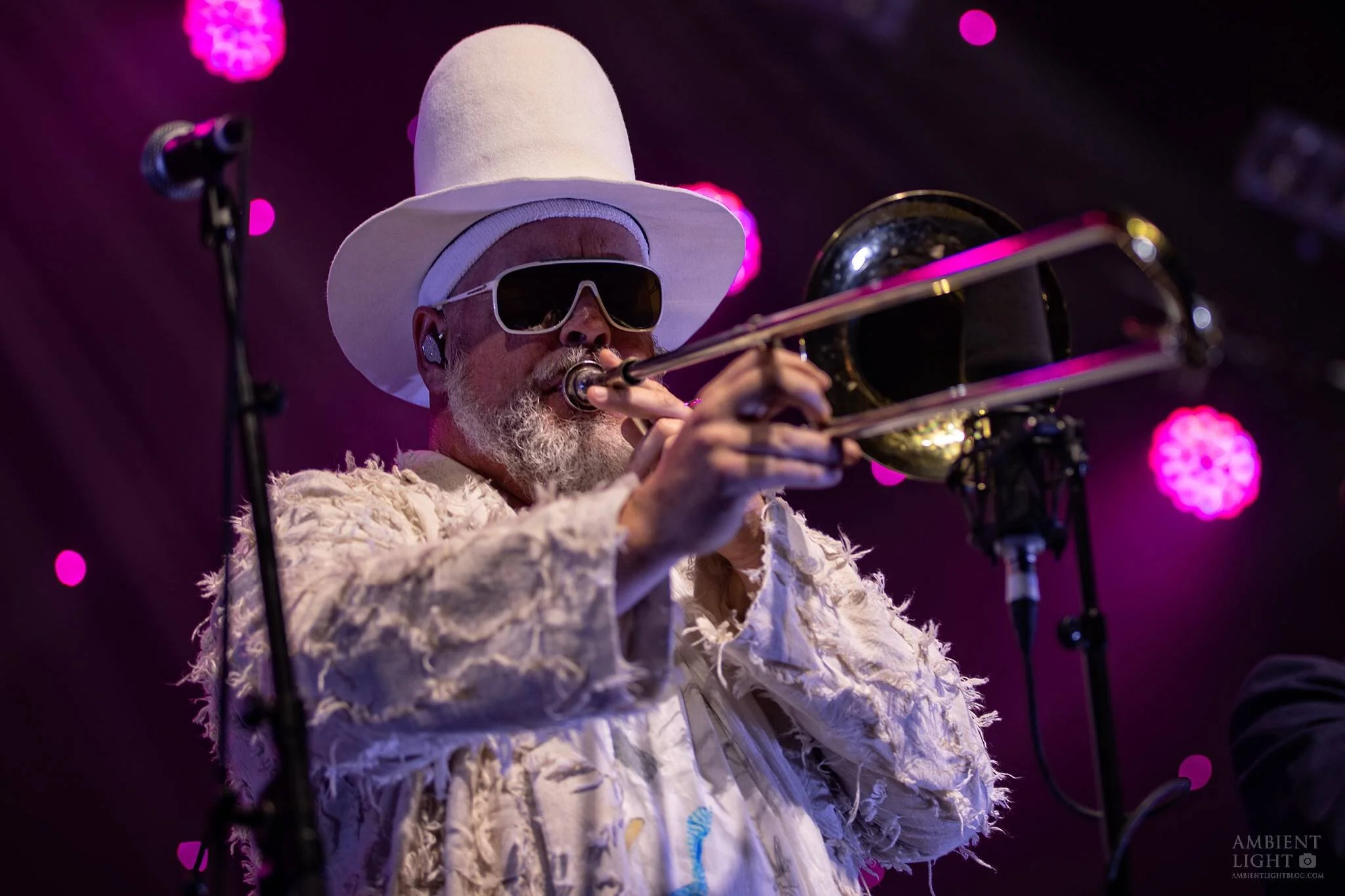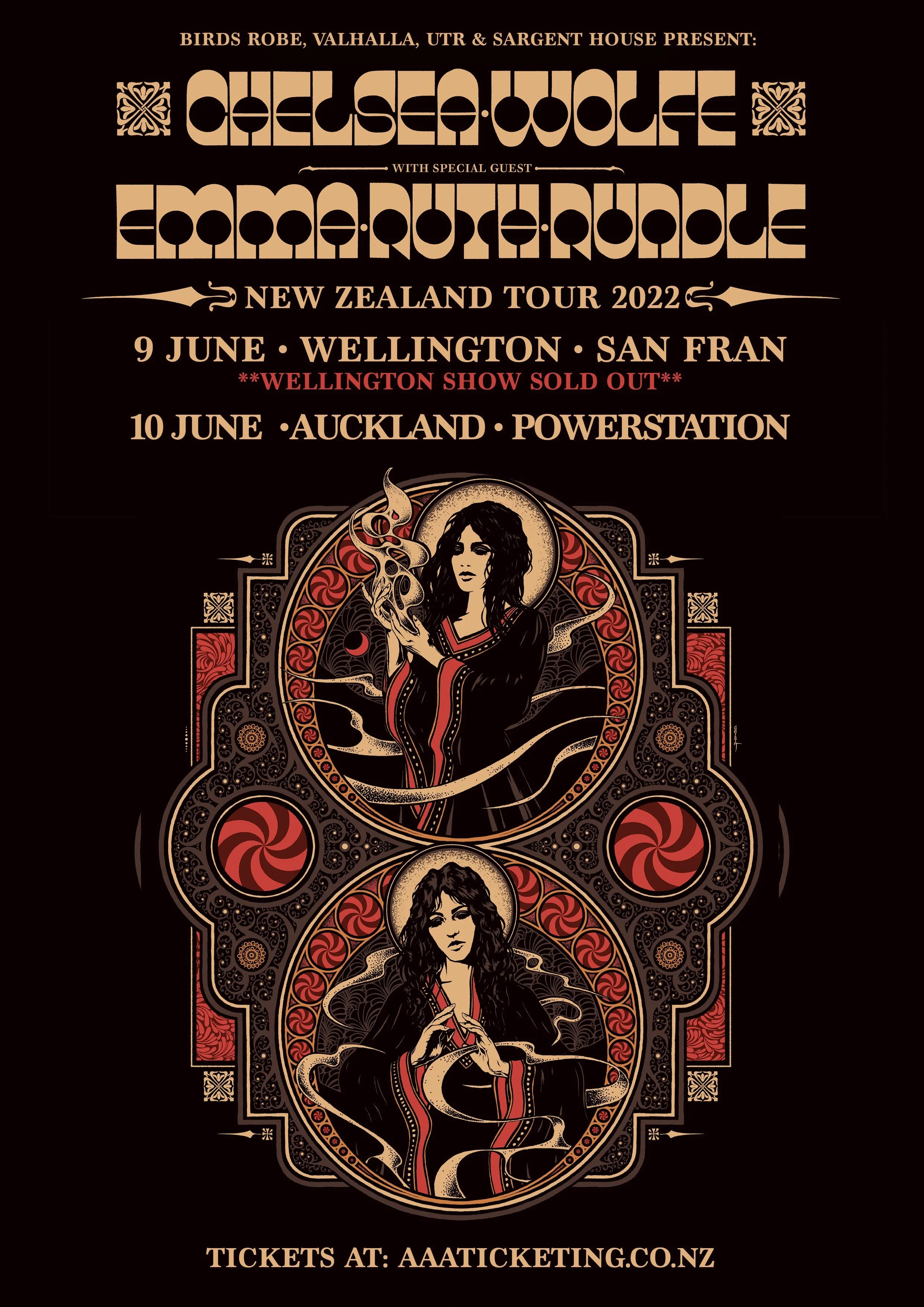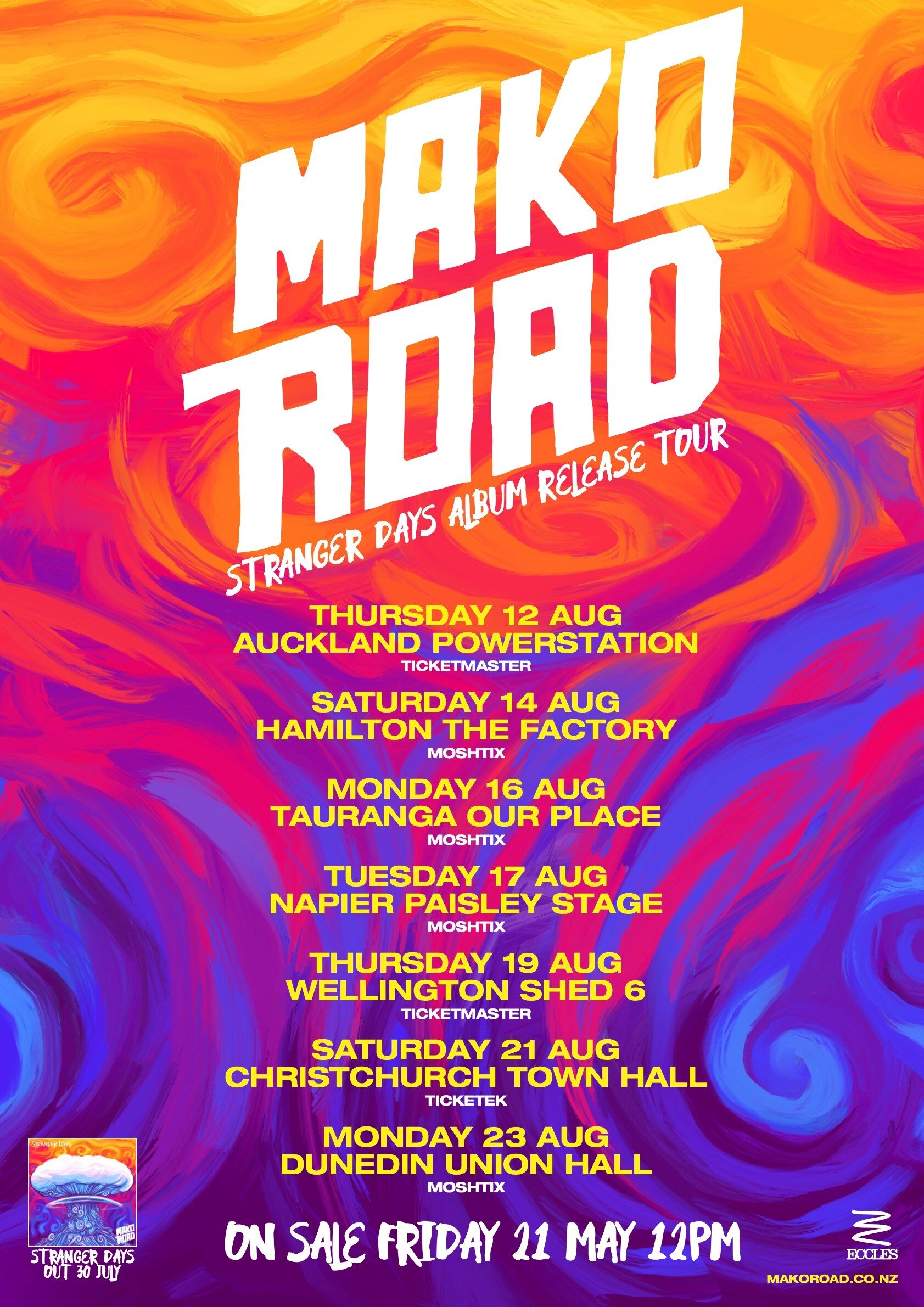Interview - Paul McLaney of Gramsci speaks with Mark Derricutt
/By: Mark Derricutt
Released during the height of a global pandemic, Paul McLaney and Gramsci return after a fifteen year hiatus with the release of their critically acclaimed album, Inheritance, and with the recent return to Alert Level One a confirmed and rescheduled live performance of the album at Auckland's ASB Waterfront Theatre on Friday 16th October.
As someone who has spent half of a lifetime discovering new bands to listen to, whilst collecting a staple of old favourites, Mark Derricutt sat down with Paul to discuss new discoveries, myths and legends, listening booths and the legacy that is Inheritance.
I guess upfront, I would say that apparently I have missed you the last 18 or so years…
I've been keeping a low profile.
I moved away from Napier in about 96, 97 and I kind of lost the local music scene down in Napier, and I lost a bit of the music scene up here and I didn't really get into the local scene for a while. Then I started discovering a whole lot of progressive rock and metal and a lot of avant garde stuff coming out of Europe. So a lot of my music interest kind of veered away from New Zealand music, even though I had a local New Zealand history with bands in Napier, and my brother is a musician, but now I come back and I'm listening to this new album and I think I'm putting this as my top album of the year, beating out my previous two tops of the years, at least for New Zealand music.
I've often had a feeling that there's not a lot of progressive rock in New Zealand but apparently I've just been completely blind.**
I think what it is, is, it's where we are in 2020, where, you know, I always talk about when I was growing up and stuff I was an avid reader of like, you know Melody Maker or NME and all that sort of stuff.
Even if I wasn't a massive fan of a particular genre, I was aware of who the key bands were and you know, there was enough curation happening in the media. You know, there was so many programs attached to music and so many magazines and periodicals and weekly things, you could keep an eye on it.
But it's very hard to, you know, the focus on music is really sort of narrow bandwidth these days in New Zealand, especially because we don't really have any dedicated music press, you know, and the ones that we do, it's only the people that were looking for it to find it, you know, it doesn't, whatever, whatever the mainstream is.
I don't, you know, think about what the mainstream is, like, it's a shared idea, but it's really just the people that got the most advertising money.
Looking at a lot of the popular New Zealand music, I guess in general, psychedelic, progressive, that kind of long form grandiose music. Isn't that what the typical New Zealander listens to?
Yeah, but it's interesting, isn't it? Cause it'd be like, if you look historically, you know what I mean? I always say in New Zealand, you don't have to scratch very far to get to the inner bogan. I mean everybody in New Zealand knows.
When I moved to New Zealand, I never heard Stairway to Heaven or Hotel California and within two weeks of living here, I was convinced that one of them must be the national anthem. And, you know, Pink Floyd's The Wall. You know, Pink Floyd generally as a band, you know, in terms of New Zealanders, how many times have you seen that poster with the women having their back painted and it's been in every small town New Zealand record shop, or at least it used to be.
I think this resurgence of vinyl and the Flying Out's, New Relics and all these sorts of record stores around the country, they're like the epicenters of this. I don't think it's revivalism for the genre that started at the format of vinyl. It's a revivalism of the people who think albums are an important thing because that's what record stores sell. It's our albums. If there's not shelves and shelves of seven inches, the shelves and shelves of, you know, 33 RPM long playing records.
Yep. And definitely not shelves of download codes for singles.
No, no, definitely not shelves of, you know, video albums .
A thought I had the other day, MP3s and streaming was one of those musical events that kind of changed the shape of music for the better and for the worst. Now we're kind of getting in a slightly post streaming world where your every day listener, they just have Spotify on their phone. They don't necessarily care about the music. They care about music as something to listen to, and what's popular. But now, yeah, you've got a resurgence of people who are sitting down going, actually, I just want to chill, listen to some music and let it soak in.
Yeah. I think even in the earliest days of record stores, you know, there were those listening booths where you go and listen to an album before you bought it and later on the nineties and stuff, you know, there would be CD players next to the counter, or you would see those booths, there was about 15 CDs. The record shop in Dunedin when I was a student, they offered me a sleeping bag cause I spent so much time there. I think that streaming thing now, I mean, streaming is, it's an accessibility thing. And I don't want to walk down the street with a record player and I want to listen to music or be able to travel and listen to music. But like you say, it's like, when you do discover one of those greats, you know, it's like the curation device. Then you go on buy the record because you've fallen in love with it, because you know, you can't buy every record you love and you do stagger the ones that have an impact on you and emotional impact on you.
So the new album, I put it on the other night. I got a sample version of it and I now need to go and buy a physical copy so I can get it in a higher res format and stuff, but this is awesome! I sat down and listened to it without reading any of the literature or any of your background thoughts and just soaked in my first impressions of the music and staring at the cover art, which is quite a visceral and visual image of this fallen dead angel being tended to by the looks of it.
It's Icarus, the son of Daedalus. He flew too close to the sun and his wings melted. It's interesting, the guy that painted that, Herbert Draper, it's actually a requiem for his father who passed away. I suppose that's the thing about myths and legends, isn't it? The reason that mythology endures, especially the Greek stuff, is that we find ourselves in it, you know, and we attach ourselves to like archetypes of aspects of human nature.They endure because those emotions endure. I always think about in this world of technology and stuff the world changed so fast over the last 50 years. What that does is just the sheer speed of evolution and terms of how life is actually lived, has increased, but we're actually sort of still operating on the work that, we work on the same operating system. It's still fear, love, hate, jealousy. Nothing's really shifted. It just, it just happens faster.
Just happens faster and probably happens all at the same time and we shift those emotions backwards and forwards and up at a whim.
They were harder earned back then, you know, a thousand years ago or something. The privilege of indulging in those emotions has never probably been as high as it is at the moment.
I just had the thought that there's the actual learning aspect from going through those emotions, these days we seem to not necessarily take that time to reflect and grow on, which is from listening and reading some of the material that you've written on the songs. This is kind of the heart of this album. It's kind of, recognizing where we are, where we've been, and kind of a self realization.
Yeah, definitely.
I guess not really a coming of age, but a coming of "the age", I guess with myths and legends there.
Yeah, it's a comedy of mind. I suppose in a way, you know, we do live in a world of distraction, so, you know, rather than going through the emotion, we can jump ship and point our attention somewhere else. It's like that thing of listening to, a vinyl record, you know, you don't just put the needle on the track you want to listen to, you put it on at the beginning and then you sit down and 23 minutes later, you turn it over for fun at 23 minutes, that's where you're engaged. That's how the album was made. It was meant to be an album where you are going to live in there for a bit, you know, that's what music has been for me. Like I had a fairly mobile childhood and music, in particular albums, became these safe harbours, you know, and then there was a consistency and they were always there and you could always go to those places.
Take us back to the original, the early days you grew up in Dunedin?
I went to a university in Dunedin. I was born in the Northeast of England and, by the time I was 13, you know, we'd been to New Zealand once before, like when I was eight, but we changed schools 13 times. I went to high school in Whangarei, and university in Dunedin and then was basically on the road for about 10 years after I left the university. I think my record at one point and the sleeping in the same bed was three days.
Well, that sounds very much like you were destined to be a musician then.
Yeah, it was music that was keeping me moving. So yeah.
So it was interesting, when I was listening to the album, I didn't actually necessarily know that you were from Dunedin and I noticed there was a sign of certain guitar tones, it's kind of jangly jingly, and the way it was played kind of did remind me of some of that Dunedin sound.
I'm a big fan of Straight Jacket Fits. I think someone like Martin Phillips is very underrated as a guitar player. If you listen to the Submarine Bells, the complexity of the guitar parts on that record, they're very clean people talk about jangly jangly - Martin Philips doesn't really strum strum. He just picked through the chords and you get that arpeggiated sort of Johnny Marks thing going on or Steve McGough from Siouxsie and the Banshees and wire and stuff.
It was interesting because as I was going through it, I was just dropping my thoughts of all the different kinds of influences that I kind of picked up on. Or at least I perceived to pick up on like in Icarus. The guitar almost felt to me a little bit of Joe Satriani with Eric Clapton and hints of Gary Moore. All these kinds of different expressions and styles, they all kind of blended together, but all were actually very unique to you.
I suppose. That's the thing, they're going to get you, you're a filter for all the things you listen to. Anyhow. One of my biggest inspirations in terms of lead playing, not inspirations in the sense that you want to copy them, but for an emotional centre, I really liked Peter Green, you know, who was a big influence on Gary Miller and obviously people like Dave Gilmore and stuff. I was talking to Jeff Boyle from Jakob about this and when I was making this record he was a really good sounding board for me. We made a promise to each other years ago that we would tell each other the truth about the music rather than going "Oh, it's great, bro." Actually give proper criticism. We were talking about those sort of guitar players and he was saying, you really like those guys like Richard Thompson and David Gilmore and Jeff Beck and Gary Miller and Peter Green, they're all sort of storytellers in terms of the guitar playing. It's not about "hey, check out this amazing sweep" or this particular technique, it's about "I'm trying to push an emotion forward". And that's what this record has got, you know, three or four sort of key guitar solos on it. They're meant to be taking off where the music leads off.
People talk about the violin being like the closest to the human voice, but I think the electric guitar with its capability to sustain. And also for bending notes, you know, he can't bend two and a half tones on a violin, but you can definitely do that on a telecaster.
I think about, you know, those classic solos, it's the two that I've mentioned a bit, cause they were like from my childhood, its The Tunnel of Love by Dire Straits and Comfortably Numb. Those songs set up a context and then the guitar takes it further than the lyric can in terms of the expression beyond and 'm really interested in that sort of, you know, why is it that certain solos, you watch those videos in the top one hundred solos of all time and you know, why is it the Comfortably Numb is always generally number one on those lists, it's not because it's technical, and it's far more technically, you know, that's sort of like Steve Vai's Love of God or something like that. Or they're technically almost unapproachable, it's the emotion in something like Comfortably Numb that obviously generates the strongest empathy, you know, one note.
You know, all those guitar players, you give them exactly the same guitar and they could play one note and you'd know exactly who it was, that's very intriguing to me.
It's almost the parts of the solo that you don't play that actually make the bits that you do play even more important.
That sounds like something Miles Davis would say.
Ancient History kind of gave me a bit of a U2 vibe on the start on the intro baseline. Then there's just lots of different feelings here. When you play this live, there is the whole visual component as well to your, your craft. Isn't there. You've got a long working history with, I've just gone blank on the director's name that you work with.
Oh, um, Mark Switter? or Ed Davis.
A guy called Ed Davis made a lot of the videos for early Gramsci. This particular show, Inheritance, is more of a celebration of inheritance.
We're using a lot of visuals that were at the very beginning of film, from the early 1900's before there was colour film. There were artists painting on film. I'm really interested in this idea of legacy, this through play of an artistry where you have, you know, movable paintings that were created over a hundred years ago interacting with music that is made now, but it is about inheritance and stuff like that.
We're really interested in using the technology of that particular theatre too that has like gold screen technology. Like what Nine Inch Nails used to do where the band can play behind the gauze with the protections in front of them. And so the band seems to be floating inside the animations. So I am excited about the visual impact of that.
And that's this Friday 16th of October at the ASB Waterfront Theatre in Auckland which was originally scheduled to be in the middle of lockdown wasn't it?
Yeah, it was, well, it's been moved around a few times. It's like herding cats moving concerts around I can tell you that.
It's not just the three people on stage. It's stage managers and lighting directors and sound guys, and ushers and front of house staff, as there's been a lot of narrative wealth, probably not as much narrative in the mainstream media as there could have been. But I would say the event, and the events sector has been probably one of the hardest hit industries in this recent pandemic situation, because, you know, I've never really thought about the fact that we're all in the business of congregation and if you can't congregate and we don't have the business.
It's one thing I've noticed with a lot of churches and they're all scrambling, they all kind of scrambled to do online services and a lot of bands are now doing their online performances, but there's something lacking still.
I mean, to me, there's a great article in medium.com the writer was saying, just stop the online thing, you know, I appreciate the impulse to do it, but unless it has a wow factor, then it's a substandard version of the thing that you're trying to say it in a certain way, it devalues it. Like if you're going to do something like that, it would have to be something you haven't seen, you know? I think about virtual reality and AR and that sort of stuff, rather than some, you know, crappy mic and crappy camera on a laptop pointing at somebody doing. In many ways it's devalued it unless you do it really really well and there's those studies on like choirs and people in congregation, how your heart rate's going to sync and things like that. It's that proximity, that shared empathy, you know, you can't really underestimate physical proximity and shared physical empathy, and you know, our PA will sound better than your PA, and be louder too.
I don't think they've had a PA this big in the ASB Waterfront Theatre before.
I've not actually been there before, so I'm very keen to actually check out the show. So you're playing Inheritance in its entirety,
Yeah. That's how I envisaged it. Yeah.
And possibly some older material as well or anything else?
Yeah, but the focus is definitely on the album as a piece and a reimagining of some older songs. I'm really forward thinking in this resurrection of Gramsci, it wasn't just to resurrect the catalog, which I am really proud of.
I think this particular album is such a, it's, I've been saying to people I feel like it's the end of my apprenticeship, this record . You talk about coming of age or coming of mind. I feel like I'm in the 15 years in between Gramsci albums, the musical adventures I've had in between has been like, you know, doing a series of master's degrees on something but really digging deep into particular genres, like, acoustic or classical and electronic composition and stuff. Now I'm bringing them all back into Gramsci it's like a cradle for a complete synergy of all of those musical aspects other than compartmentalising them on, treating them separately. Just trying to bring it all into one expression, which again, you mentioned, that there's different people you heard in the guitar solos, it's like everything now coming through this one lens of my musical ambition.
Talking about that, that 15 years between Gramsci albums, you've worked with so many different artists. Within those times. I was looking at the discography and there's something like 50 plus different productions, different side projects, all the stuff that you did with the theatre. When coming back to Gramsci, and this is something that I've asked several artists over the time who've had a large back catalog, how did you, in your mind, stay fresh with ideas? You're coming back to Gramsci and you've now got all the inspiration from those different areas, but is there any point in your mind where you go, actually I've taken too much from what I did before, or I've borrowed?
Well that's the interesting thing the motivation is to do the opposite of that, to not repeat yourself. I think that's when you'd stop getting inspired.
You know, hats off to ACDC, but, you know, I don't know how I could sustain that. There's something quite zen about it I suppose to just to drill into one thing and just keep going. I think you get diminished returns. I don't think, you know, Shot In The Dark or whatever it is, is going to sit alongside Highway To Hell or Back In Black. You know, in the coming years, my whole thing is to not repeat myself and to be constantly engaged.
The thing about collaboration and working in theatre and stuff like that is you're looking at so many of the creative people that push you into new creative, endeavours. You're constantly finding out more. I read somewhere. Somebody said it. If you don't think the song you've just written as the best one you've ever, ever written, then it's probably time to stop.
They should be improving, I should be a better musician now than I was 15 years ago, because I work at it every day and I should be improving. And it's not like it's, I'm not doing a hundred meter sprints and my body is not going to give out, you know? So like the synergy for writing and performing should improve really. The idea of repeating yourself and having to play the same 12 songs on stage every night for the next 50 years - there's plenty of shit jobs in the world without making music one.
So is that possibly an avenue of you writing music for yourself, performing the music for yourself as opposed to performing and writing? For the fans ...
I definitely don't second guess it, you know, will they like this or will they like that? I feel that if it inspires me, then it will connect with likeminded minds. If you spend too much time thinking about what other people think about what you do then you'll probably just end up in a space of inertia really and it dilutes things, you know, it's like having a strong opinion, you know, a lot of people are afraid to have an opinion because they think it will.
Offend someone or.
Yeah, and the thing is, you know, you're going to offend some people and not everyone's going to like what you do. I mean I don't think there's a whole bunch of Dillinger Escape Plan fans who are going to rush out and buy the new Gramsci record or a whole bunch of Justin Bieber fans either but people who like the same records that I like and are motivated by the same artistic impulses that I'm motivated by may find some point of empathy in what I do. Like minded souls are attracted to each other. That's and that's why we have the little parishes of a congregation. I'm not a religious person, but I do see the benefit in the parish and I do that every Sunday, And, you know, when you go to a concert of David Byrne or Roger Waters, you know, basically that's just a common case of likeminded people who have had similar emotional experience through their engagement of that person's music.
So what's next for Gramsci then? Have you started writing or considering writing some more..
I've written the next album. It's all demo’d and ready to be recorded.
Does that have a title or an estimated release date or is that too far away
Yeah, it has a title and it has an estimated release date.
I feel bad about talking about the next thing. I'm still, you know, I haven't had a gig yet, but no, I mean, I've definitely hit a vein, the experiences and the learning curve of the last 15 years have generated. The next album is called The Hinterlands and I expect it to be out in March/ April next year.
The taps on because I don't want to turn the tap off.































